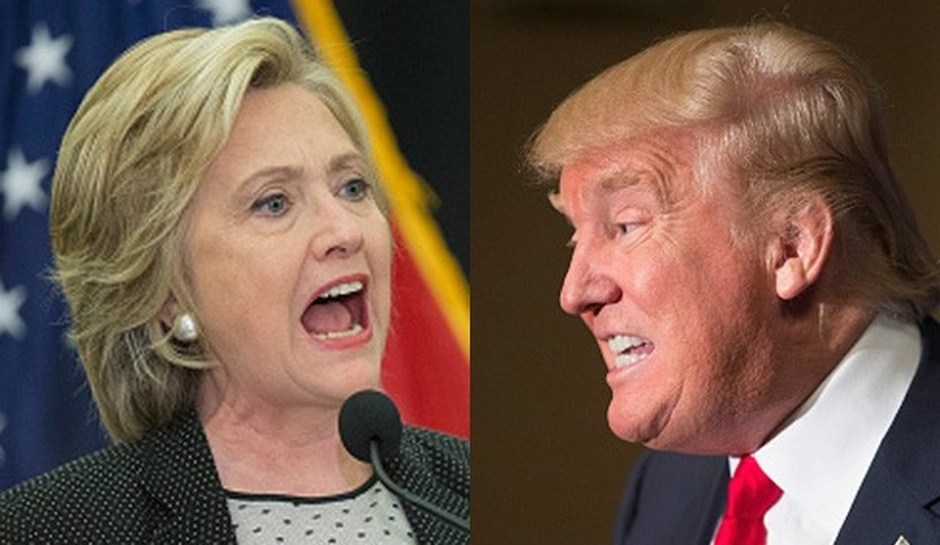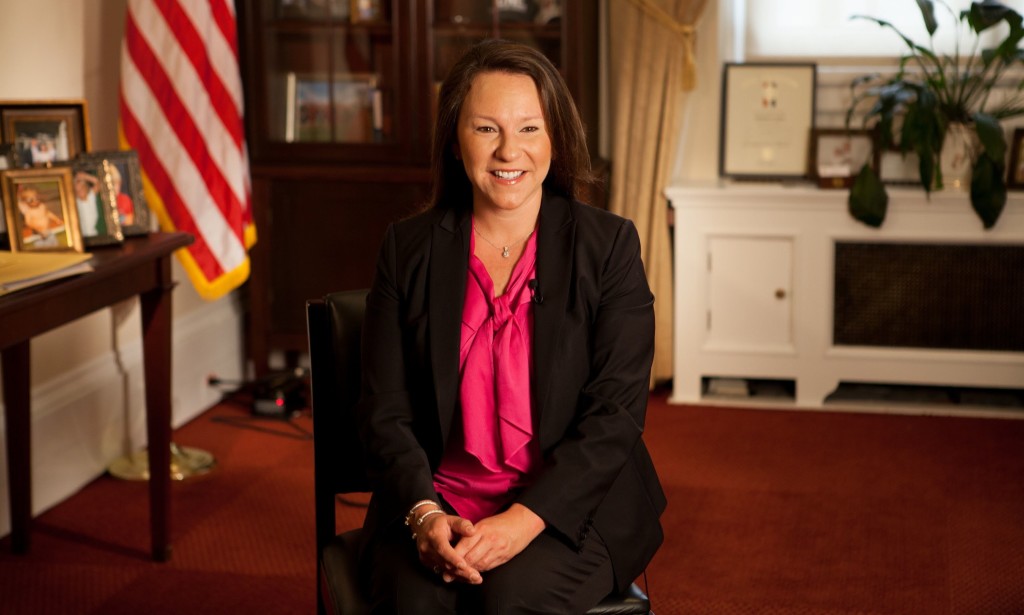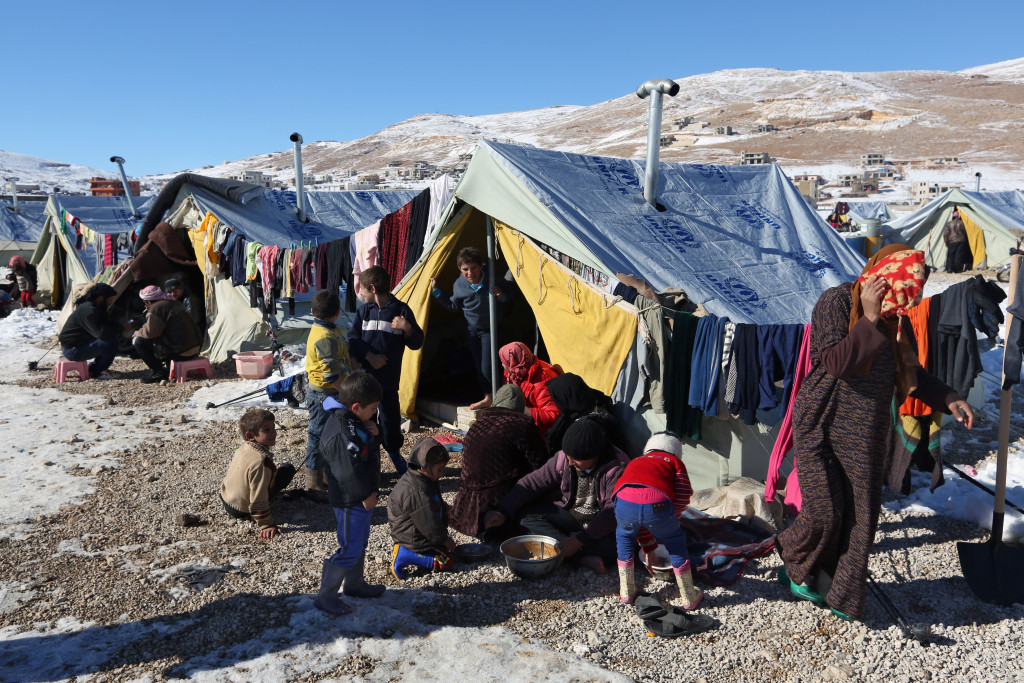Donald Trump and Hillary Clinton clash over national security

With Labor Day behind them, Donald Trump and Hillary Clinton are battling over national security in the South’s top presidential battlegrounds. Trump, the Republican nominee, released an open letter early Tuesday from 88 retired generals and admirals citing an urgent need for a “course correction” on America’s national security policy. “We believe that such a change can only be made by someone who has not been deeply involved with, and substantially responsible for, the hollowing out of our military and the burgeoning threats facing our country around the world,” the military leaders wrote. “For this reason, we support Donald Trump’s candidacy to be our next commander-in-chief.” Clinton’s campaign is spending big to undercut Trump’s message in a new TV ad also released Tuesday entitled, “Sacrifice.” Specifically, the ad shows military veterans watching some of the New York billionaire’s more provocative statements, including his claim to know more about the Islamic State group than military generals, his criticism of Arizona Sen. John McCain, a former prisoner of war. It also features Trump’s claim that he sacrificed a lot compared to families who have lost loved ones in conflict. “Our veterans deserve better,” reads a line at the end of the ad, which is airing in Ohio, Florida, Iowa, Nevada and Pennsylvania. The conflicting messages come as the candidates prepare to court voters in Southern states with significant veteran populations. The pair is also set to appear at an MSNBC forum on Wednesday night on national security. Trump is scheduled to campaign in Virginia and North Carolina on Tuesday, two critical states in his path to the presidency. Trump’s afternoon event in Virginia Beach will focus on national security, and he’s expected to meet with parents of soldiers later in the day. Clinton and her running mate, Tim Kaine, were making a pronounced pitch on national security and defense policy on Tuesday, fanning out to military-rich communities of Tampa, Florida, and Wilmington, North Carolina. At every stop, Clinton argues that Trump is temperamentally unfit to serve as commander-in-chief, warning that his bluster would damage the nation’s longstanding alliances. A Clinton victory in Florida would make it virtually impossible for Trump to overcome her advantage in the race for 270 electoral votes. Clinton has gotten help from the Republicans in questioning Trump’s capacity to serve as commander in chief. Dozens of GOP national security leaders released a letter last month warning that Trump would risk the nation’s “national security and well-being.” Trump, meanwhile, continued to face questions about his immigration policy a day after refusing to rule out a pathway to legal status for immigrants in the country illegally. He focused on his proposed border wall plan in a Tuesday interview with ABC’s “Good Morning America.” The Republican White House contender said the Mexican president violated some “ground rules” by admitting that the two did actually discuss payment of his proposed border wall between the two countries, but added, “that’s ok.” At the joint press conference with President Enrique Pena Nieto last week, Trump told reporters that payment of his proposed border wall was not discussed. Pena Nieto later tweeted that it was addressed and he “made it clear” to Trump that Mexico would not pay. He added that had Clinton gone to Mexico, the trip would have been “a total failure.” The day before, Trump attacked Clinton’s energy level, noting she hasn’t followed his aggressive traveling schedule and questioning whether she had the stamina to lead the nation. “She didn’t have the energy to go to Louisiana. And she didn’t have the energy to go to Mexico,” he said. Clinton held a rare news conference aboard her new campaign plane on Monday as both candidates competed for votes in swing state Ohio. The former secretary of state said she is concerned about “credible reports about Russian government interference in our elections.” “We are going to have to take those threats and attacks seriously,” Clinton told reporters. Clinton’s comments follow reports that the Russian government may have been involved in the hacking of Democratic National Committee emails just days before the party’s national convention. The emails, later revealed by WikiLeaks, showed some DNC officials favoring Clinton over her primary opponent, Bernie Sanders – who has since endorsed Clinton for president. She said Russian President Vladimir Putin appears “quite satisfied with himself” and said Trump “has generally parroted what is a Putin-Kremlin line.” Clinton’s 25-minute question-and-answer session was her first extensive availability with reporters since early December. Beyond Russia, she answered questions about the ongoing controversy surrounding her use of a private email server while secretary of state, which Trump has used to cast doubt over her ability to protect classified information. The former secretary of state flatly said “No,” when asked in an ABC News interview whether she’d be willing to accept the Mexican president’s invitation to visit the country, as Trump did last week. “I’m going to continue to focus on what we’re doing to create jobs here at home,” Clinton said. Republished with permission of the Associated Press.
Bradley Byrne: A better way forward

From health care to national security, people are worried about the direction our country is headed. That is certainly what I hear at my town hall meetings in Southwest Alabama, but the same is true all around the United States. According to Real Clear Politics, 65 percent of Americans believe our country is headed in the wrong direction. When you are frustrated, it is simple to spend all your time complaining about what is wrong. In other words, it is easy to be against something. But we can’t just spend all our time complaining and talking about why we are frustrated. We must rise above that temptation. Instead, we need to counter the current policies with ideas of our own. The American people are better off when there is a battle of ideas. With this in mind, House Republicans recently released what we are calling a “Better Way” agenda. This agenda offers an alternative to the “Washington-knows-best,” big government policies that have wrecked our country over the last eight years. Our platform focuses on six main areas, so I want to take a minute to discuss our plan and explain why I believe it offers a “Better Way.” Poverty: Our nation’s welfare system needs to put a real focus on work instead of just throwing more money toward government programs. We must do more to help Americans gain the skills they need to get a job instead of encouraging government dependency. National Security: We have to get serious about defeating radical Islamic terrorism, and that means having a strategy to defeat our enemies overseas. We must also protect the homeland by securing our borders and closing loopholes in our broken immigration system. It is also important that we don’t lose sight of new, evolving threats like cyberattacks. The safety and security of the American people must always be the top priority. The Economy: It is time we roll back costly regulations that are only driving up costs for American families. We must also focus on making energy more affordable by pursuing an “all-of-the-above” energy strategy. Innovation needs to be encouraged instead of punished. Finally, we need to put an end to Wall Street bailouts once and for all. The Constitution: We have to make sure the Constitution is being followed, and that means restoring the powers of Congress. We must hold government agencies accountable and do everything we can to encourage efficiency and effectiveness across the federal government. Most importantly, Congress must get back to using our “power of the purse.” Health Care: First, Obamacare must go, but we need to replace it with patient-centered reforms based on free-market principles. We need to give patients more choices by allowing for health insurance to be sold across state lines. We must also strengthen Medicare for our nation’s seniors while also preserving the program for the next generation. Tax Reform: We need to completely rewrite the tax code so it is simpler and fairer for every family. Under our plan, everyone’s taxes would come down, and most people could fill out their taxes with a simple post card form. These reforms will also boost the economy and make it easier for small businesses to create jobs. This is just a quick look at our “Better Way” agenda. You can learn more online at Better.gop. I also realize that our agenda won’t be put in place overnight. Some of the reforms will take longer than others, but at least now we have put forward a bold agenda for the path forward. There is a “Better Way,” and I am committed to making it a reality. • • • Bradley Byrne is a member of U.S. Congress representing Alabama’s 1st Congressional District.
Martha Roby: Marking successes in 2015, renewing priorities for 2016

As 2015 comes to a close, it offers us a chance to reflect on the work the past year and gain a sense of renewed priorities for the year to come. Legislative achievements can be scarce in the halls of Congress, but this year actually saw several successes on issues important to Alabama. Empowering States in Education Decisions: In a huge win for states’ authority in education, a bill to finally replace the flawed “No Child Left Behind” policy was passed by the House and Senate and signed into law. The strong “state authority” provisions I introduced and championed were included in the final bill and are now law. These provisions strictly prohibit the federal government from using funding grants or rule waivers to coerce states into adopting its preferred policies, like Common Core. Funding Our Nation’s Infrastructure: For the first time in a decade, we were able to get a long-term highway bill passed and signed into law. The legislation provides for our nation’s infrastructure for five years while deferring much of the planning and decision-making to states and local governments. It’s Congress’ responsibility to fund transportation infrastructure and make sure the tax dollars you send to Washington come back to benefit you, so I was pleased to get this bill done. Bolstering National Security: Amid the terrorist threat, Congress took an important step to strengthen security protocols in our visa program. The Visa Waiver Program Improvement and Terrorist Travel Prevention Act closes gaps in our system to prevent terrorists from exploiting our relationships with other nations to gain entry into the United States. This is just one of many steps we need to take to beef up security and make sure authorities have the tools they need to protect Americans here at home. On several other important issues, we made progress but fell short of getting legislation passed. Among them: Halting EPA Overreach: The House voted to put a stop to the Environmental Protection Agency’s aggressive attempt to expand its reach into private lands by seeking to make small ponds, puddles and ditches subject to strict federal regulations. Our bill still awaits Senate action, but, thankfully, the Judicial Branch stepped in to halt this action as it is reviewed for constitutionality. Defunding Planned Parenthood: I have fought to stop taxpayer dollars from going to the nation’s largest abortion provider since I first came to Congress, and this year I was the last one standing in a “last ditch” effort to cut off these dollars in a government funding bill. In the end, the Senate blocked our efforts. But, I believe highlighting the issue and not allowing the media to ignore it were important. Public funds are much better spent at Federally Qualified and Rural Health Centers that provide an array of services for low income women but do not perform abortions, and I’ll keep working to make that so. In the coming year, I’ll continue fighting to advance conservative legislation that puts the priorities of Alabamians first. Martha Roby represents Alabama’s 2nd Congressional District. She lives in Montgomery with her husband, Riley and their two children.
Bradley Byrne: National security should always be our top priority

When considering whether to vote in favor of legislation, I often ask myself a simple question: Is this in the best interest of the American people? I believe that should be a guiding principle for all our elected officials when they are faced with a major decision. Recently, President Barack Obama and Secretary of State John Kerry announced a plan to increase the number of refugees allowed into the United States. Under their plan, the Obama Administration plans to accept at least 10,000 refugees from Syria. As soon as I heard this news, I had major concerns about the impact this decision would have on the American people and the national security of our country. Let me explain why. Currently, Syria is home to a major conflict between the regime of President Bashar al-Assad, fighters with the Islamic State, and many different factions of rebels who wish to overrun the government. This brutal fighting has resulted in a mass exodus of Syrian people looking to escape their war torn country. That’s where President Obama’s decision comes into play. As defined by the Immigration and Nationality Act, a refugee is someone who is unable or unwilling to return to his or her home country because of a “well-founded fear of persecution.” The federal government has a process for screening and accepting these individuals before allowing their admission into the US, and the Syrian people can certainly make a strong case to be admitted. However, I have serious concerns about the threat of terrorists infiltrating the refugee system and entering the United States. Groups like the Islamic State have made clear that they would attempt to disguise terrorist operatives as refugees. I am not the only one who has these concerns. In fact, Director of National Intelligence James Clapper recently called the migrant issue a “huge concern” and said that “we don’t put it past the likes of [the Islamic State] to infiltrate operatives among these refugees.” At a recent House Homeland Security Committee hearing, officials from the Federal Bureau of Investigation (FBI) and Department of Homeland Security (DHS) implied that bringing in a large number of Syrian refugees would represent a threat to our national security. DHS officials have even admitted that Syria does not have a computer database to check the criminal and terrorist records of these refugees. The issue is especially of interest to those of us in Southwest Alabama because Mobile is home to one of the 190 State Department refugee affiliates. This means Syrian refugees could be placed in our local community. That is why I sent a letter to the Department of State asking for information about the screening process the refugees would be required to go through. In response to my letter, I was invited to attend a classified briefing to learn more about the screening process. Unfortunately, I left the briefing with many of the same concerns. So after listening to the concerns of my constituents and getting more information from the State Department, I decided to support H.R. 3573, the Refugee Resettlement Oversight and Security Act. This bill would require approval from both the House and the Senate before refugees could be admitted to the United States. The bill would also give Congress the authority to block any inadequate refugee resettlement plan. There is simply no way to know for sure that terrorist groups, like the Islamic State, are not going to infiltrate the refugee process, and the Refugee Resettlement Oversight and Security Act will ensure that Congress, and in turn the American people, have the final say when it comes to increasing the number of refugees. On this issue, like many others, I can’t help but ask myself: Is this in the best interest of the American people? At this point, it seems clear the answer is no. Bradley Byrne is a member of the U.S. Congress representing Alabama’s 1st Congressional District.
Obama: Climate change will harm national security

President Barack Obama is framing the challenges of climate change as a matter of national security that threatens to aggravate poverty and political instability around the globe and jeopardize the readiness of U.S. forces. “Make no mistake, it will impact how our military defends our country,” the president says in excerpts of a commencement address prepared for delivery Wednesday at the U.S. Coast Guard Academy in New London, Conn. “And so we need to act and we need to act now.” The president in recent months has pressed for action on climate change as a matter of health, as a matter of environmental protection and as a matter of international obligation. He’s even couched it as a family matter, linking it to the worry he felt when one his daughters had an asthma attack as a preschooler. His speech to the cadets, by contrast, is focused on what the Obama administration says are immediate risks to national security, including contributing to more natural disasters that result in humanitarian crises and potential new flows of refugees. Further, the president sees climate change aggravating poverty and social tensions that can fuel instability and foster terrorist activity and other violence. Obama said the cadets would be part of the first generation of officers to begin their service in a world where it is increasingly clear that “climate change will shape how every one of our services plan, operate, train, equip and protect their infrastructure.” His prepared remarks said climate change “is not just a problem for countries on the coast or for certain regions of the world. Climate change impacts every country on the planet.” As for the impact in the U.S., Obama pointed to streets in Miami and Charleston, S.C., that flood at high tide and to military bases across the country already feeling negative effects. “Around Norfolk, high tides and storms increasingly flood parts of our Navy base and an air base,” Obama said of military facilities in Virginia. “In Alaska, thawing permafrost is damaging military facilities. Out West, deeper droughts and longer wildfires could threaten training areas our troops depend on.” With the Republican-led Congress indifferent to Obama’s entreaties, the president has been doing what he can to combat climate change through executive orders to cut greenhouse gas emissions and through the powers of persuasion. But his climate change agenda has drawn strong political opposition and a number of legal challenges. Many of the GOP presidential candidates for 2016 have said that taking unilateral steps to address climate change could hurt the U.S. economy. Obama’s appearance at the Coast Guard Academy was to be his second and last commencement address of the season after speaking earlier this month at a community college in South Dakota. The president traditionally delivers a commencement address every year to one of the service academies. Later Wednesday, he was visiting Stamford, Conn., for a Democratic fundraiser at a private home, with about 30 supporters contributing up to $33,400 each. Republished with permission of The Associated Press.


